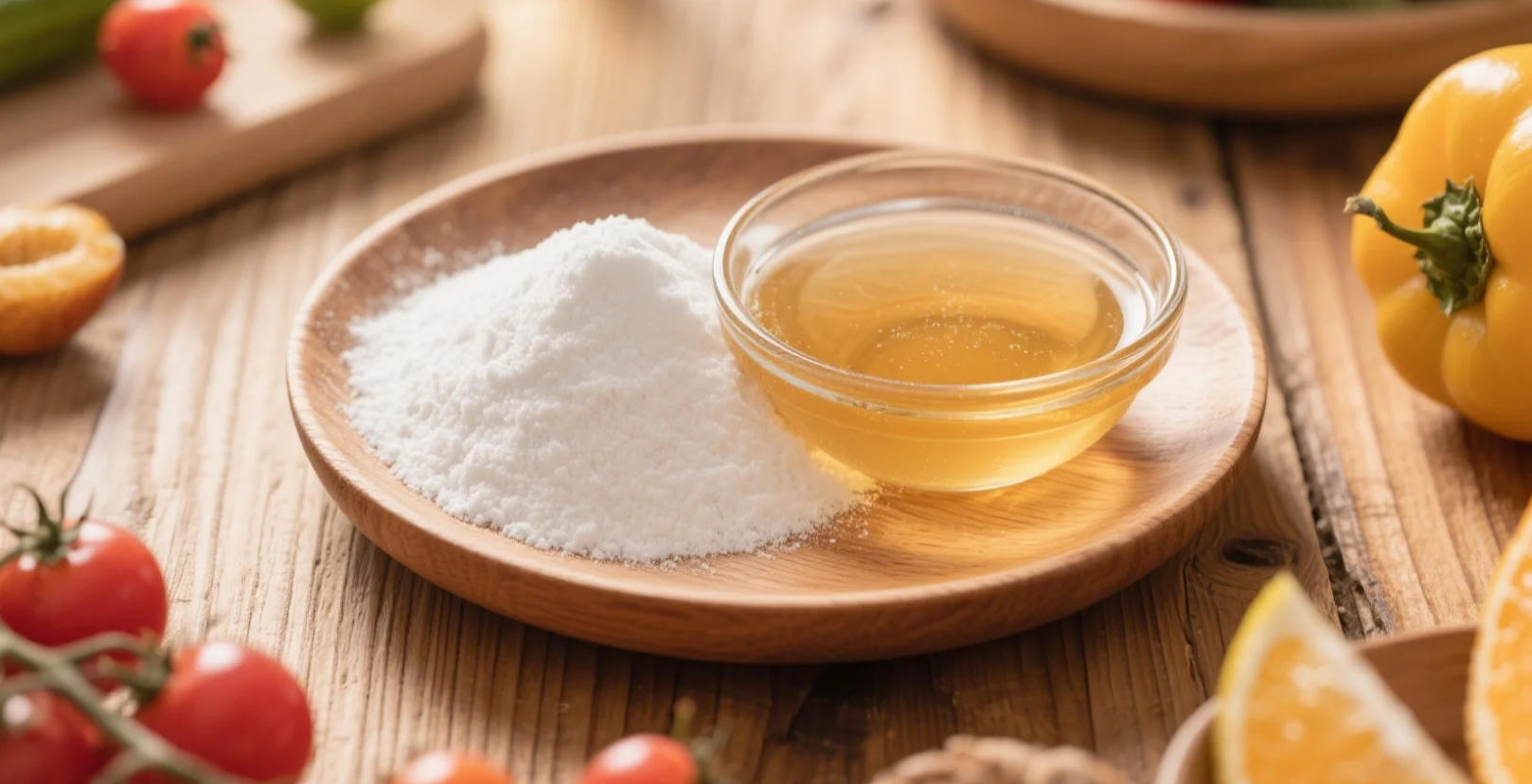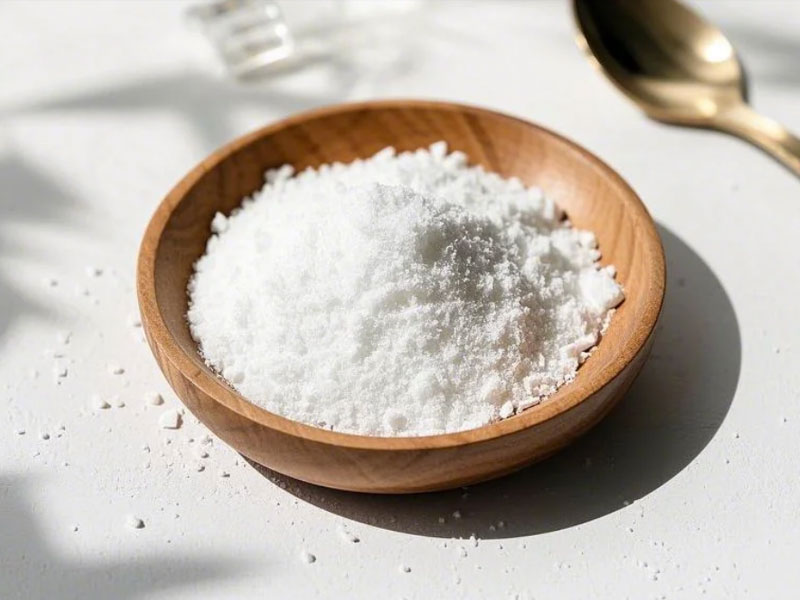As consumer preferences shift toward healthier, low-sugar lifestyles, the confectionery industry faces one of its biggest challenges: how to reduce sugar without sacrificing taste, texture, or indulgence. Traditional sweeteners such as aspartame or sucralose often fail to deliver the sensory experience that consumers expect.
That’s where organic allulose — available in both powder and syrup forms — is redefining the landscape of sugar-free confectionery innovation. Offering natural sweetness, clean-label credibility, and functional performance, organic allulose allows manufacturers to craft confections that are as delicious as they are health-conscious.
What Makes Organic Allulose a Game-Changer?
Organic allulose, also known as D-psicose, is a rare natural sugar that occurs in small amounts in fruits like figs and jackfruit. It delivers approximately 70% of the sweetness of sucrose but contributes less than 0.4 kcal per gram. Unlike other low-calorie sweeteners, it mimics sugar’s taste, texture, and functionality, making it ideal for use in candies, chocolates, gummies, and toffees.
Produced via enzymatic conversion of fructose from organic sources, organic allulose is non-GMO, chemical-free, and certified organic, aligning perfectly with modern clean-label and natural product trends.
Key Advantages of Organic Allulose in Sugar-Free Confectionery
1. Sugar-Like Sweetness Without Calories
Organic allulose provides a clean, balanced sweetness similar to sucrose — without bitterness or artificial aftertaste. This makes it suitable for all types of confectionery, including chocolates, caramels, lollipops, and jellies, where taste is paramount.
2. Low Glycemic Index and Keto Compatibility
Unlike regular sugar, allulose has no impact on blood glucose or insulin levels, making it a perfect fit for keto, diabetic-friendly, and low-carb confectionery products.
3. Excellent Texture and Mouthfeel
Texture is crucial in candy production. Allulose contributes to the smooth, chewy, and glossy qualities found in traditional sugar-based sweets. In chocolates, it improves melt behavior and creaminess, while in gummies, it enhances elasticity and chewiness.
4. Thermal and Processing Stability
Organic allulose withstands high temperatures, allowing confectionery manufacturers to use it in boiled candies, caramels, and baked fillings without degradation or unwanted off-flavors.
5. Moisture Control and Shelf Life Extension
Allulose syrup, in particular, offers excellent humectant properties, preventing candies from hardening or crystallizing over time — an important factor in maintaining product quality and freshness.
Applications Across Sugar-Free Confectionery
| Category | Product Example | Function of Organic Allulose |
|---|---|---|
| Hard Candies | Sugar-free lollipops, fruit drops | Provides clean sweetness, heat stability |
| Chewy & Soft Candies | Gummies, toffees | Adds elasticity and moisture retention |
| Chocolate & Coatings | Keto chocolate bars, enrobed snacks | Improves texture and mouthfeel |
| Caramel & Fudge | Sugar-free caramel sauce, chewy fudge | Enables browning, smooth viscosity |
| Functional Confections | Vitamin gummies, collagen candies | Enhances taste without added sugar |
Whether used as organic allulose powder for dry formulations or organic allulose syrup for moist, elastic textures, the ingredient offers unmatched flexibility for product innovation.
Comparing Allulose with Other Sugar Replacers
| Sweetener | Sweetness Level vs. Sugar | Aftertaste | Heat Stability | Texture Contribution | Calories (kcal/g) |
|---|---|---|---|---|---|
| Stevia | 200–300× | Bitter | High | None | 0 |
| Erythritol | 70% | Cooling | High | Grainy | 0.2 |
| Maltitol | 90% | Mild | High | Chewy | 2.1 |
| Allulose | 70% | None | Excellent | Smooth | 0.4 |
Organic allulose stands out for combining sugar-like functionality with clean-label and low-calorie benefits, making it the most balanced option for premium confectionery formulations.
B2B Advantages: Why Manufacturers Choose Organic Allulose
- Simplified Reformulation
Allulose behaves like sugar, allowing manufacturers to replace sucrose with minimal adjustments in cooking time, pH, or ingredient ratios. - Premium Market Positioning
Products sweetened with organic allulose can be marketed as “organic,” “natural,” “low-sugar,” “diabetic-safe,” and “keto-compatible.” - Regulatory Support
Approved by the U.S. FDA (GRAS) and recognized by key international authorities, allulose is compliant for global trade and production. - Supply Chain and Sustainability
BIOSTARCH’s production of organic allulose uses eco-friendly enzymatic technology, ensuring traceable, sustainable sourcing and consistent product quality for large-scale manufacturing.
Case Study: Sugar-Free Gummies with Organic Allulose
A European confectionery brand sought to create a sugar-free gummy line with a clean-label and natural sweetness. By replacing maltitol with organic allulose syrup, they achieved:
- 40% calorie reduction
- Improved chewiness and flavor release
- No cooling effect or off-flavor
- Increased shelf stability
The result was a keto-friendly gummy that matched the sweetness and texture of traditional sugar-based products — winning strong consumer acceptance.
Why Choose BIOSTARCH as Your Supplier
At BIOSTARCH, we specialize in producing organic allulose powder and organic allulose syrup for industrial applications. Our products are:
- Certified USDA & EU Organic
- Derived from non-GMO plant sources
- Consistent in purity, sweetness, and stability
- Available in bulk packaging for global B2B distribution
We also provide technical support to help manufacturers reformulate recipes or optimize processing parameters for sugar-free confectionery success.
Conclusion
Organic allulose is revolutionizing the sugar-free confectionery market, enabling manufacturers to craft products that meet modern demands for health, taste, and sustainability. With its natural sweetness, sugar-like behavior, and organic certification, it offers an unparalleled solution for next-generation candy, chocolate, and gummy innovation.
Whether you’re launching a new keto candy line or reformulating an existing product, organic allulose powder and syrup are your gateway to delicious, guilt-free indulgence.
Recommended Product
Organic Allulose Sweetener
Zero-Calorie, Natural Sweetener for Clean-Label Food, Beverage & Keto Formulations

